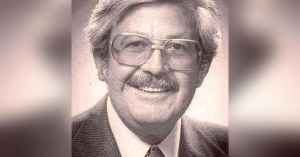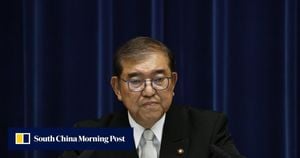John Horgan, who passed away on Tuesday at 65, leaves behind not only his personal legacy but also significant political footprints during his tenure as the premier of British Columbia from 2017 to 2022. Known for his ability to collaborate across party lines, Horgan was praised even by his adversaries. Christy Clark, the former B.C. Liberal premier, acknowledged their adversarial relationship, stating, "We did have spirited debates, but he was a really dedicated public servant." His handling of the COVID-19 pandemic, along with steering the province through historic wildfires and flooding, solidified his reputation. This marks Horgan's unparalleled strength as an interpersonal leader, respected by both colleagues and citizens alike.
Mike Farnworth, who served alongside Horgan during their political journeys, highlighted his popularity across the political spectrum, saying, "He left office incredibly popular right across the political spectrum, respected by his colleagues, his fellow premiers, and right across the country." Throughout his time as premier, Horgan's rule was characterized by affordability measures aimed at alleviating the cost of living crisis, which was exacerbated by global economic pressures.
One notable change was the eradication of large-scale contributions from unions and corporate entities during elections, which former NDP premier Glen Clark viewed as perhaps Horgan’s most important long-term contribution. "No party now has a huge competitive advantage because [of] the wealthy people buying votes. And I think that's something hopefully long-term legacy," Clark stated. This approach aimed to establish fairness by leveling the political playing field.
During his administration, Horgan’s government introduced long-term freezes on insurance rates for the Insurance Corporation of British Columbia (ICBC), switching to a no-fault model. While the government touted it as a money-saving initiative, there were criticisms from accident survivors and legal professionals who argued it short-changed victims of automobile accidents. Horgan was also instrumental in eliminating premiums for the Medical Services Plan, which he initially coined "one of the largest middle-class tax cuts in B.C.'s history."
Under Horgan's watch, the B.C. NDP government not only increased welfare and disability rates but also implemented new taxes targeting high-income earners and those owning multiple properties. This was particularly important amid the growing housing crisis where affordability became a pressing concern for many. Horgan asserted, "Our attempt to address [the housing crisis] has caused the status quo to be unearthed or upended but...that is often what has to happen to see the change needed to correct what has been runaway housing market.”
Another groundbreaking aspect of Horgan's legacy was the enactment of the Declaration on the Rights of Indigenous Peoples Act, making B.C. the first province to integrate the United Nations Declaration of the Rights of Indigenous Peoples (UNDRIP) directly within provincial law. This legislation empowers Indigenous communities by providing them greater authority over their resources. Terry Teegee, regional chief of the British Columbia Assembly of First Nations, remarked, "Everything changed after the passing of the legislation where we were really, as First Nations people, asserting our rights, ability for sovereignty, and self-determination.”
Similarly, Tsartlip First Nation Chief Don Tom noted the act's role as fundamentally transformative, saying, "He brought in the first consent-based decision-making which marked breakthroughs for First Nations governance and co-management of natural resources.” Tensions surrounding old-growth logging remained high, particularly at sites like the Fairy Creek watershed, which saw significant protests against logging practices. Despite these critiques, Horgan's government continued to support liquefied natural gas projects, leading to backlash from environmentalists.
Critics were vocal about Horgan's environmental policies, expressing concerns over old-growth logging and the approval of the controversial Site C hydroelectric dam project. Activist Ingmar Lee voiced his frustrations succinctly, stating, "John Horgan was no environmentalist and his environmental legacy is just [an] absolute rampage of destruction." On the flip side, proponents argued Horgan did his best to navigate the complex balance between industry demands and environmental protection, reflecting on how challenging decisions were often the norm.
Former B.C. premier Glen Clark opined, "Site C was an important piece of infrastructure... I think he navigated how to change positions on a big issue beautifully." Looking back, it's clear Horgan's tenure wasn’t without challenges and contradictions but was impactful nonetheless. His gradual shift from opposition to support on various issues showcased the intense negotiation required to build coalitions and establish legacy projects.
Even as his political career closed, the residual effects of his leadership style remain evident. David Eby, Horgan's successor, acknowledged Horgan's monumental task of bringing the NDP back to power after 16 years of being sidelined, which he described as taking them from the political wilderness back to government. Eby observed, "For many British Columbians, he made them think differently about politics and about politicians.” This reflects the significant shift Horgan initiated, altering how citizens regarded their leaders and the political process itself.
While Horgan's environmental policies are debated, it's evident he made strides toward inclusivity through the acknowledgment of Indigenous rights and responsive economic measures for the working class. At the same time, he grappled with considerable backlash from sectors opposing his government's growth agenda. Balancing modern developmental needs with traditional ecological perspectives embodies the ever-elusive ideal of sustainable governance.
He may have left the political spotlight, but John Horgan's legacy is one stitched deeply within the fabric of British Columbia's socio-political and environmental landscapes. The true measure of his impact will perhaps be judged by how future leaders engage with the progressive measures he put forth during his time and how they continue to evolve B.C. down the convoluted path of progress.



